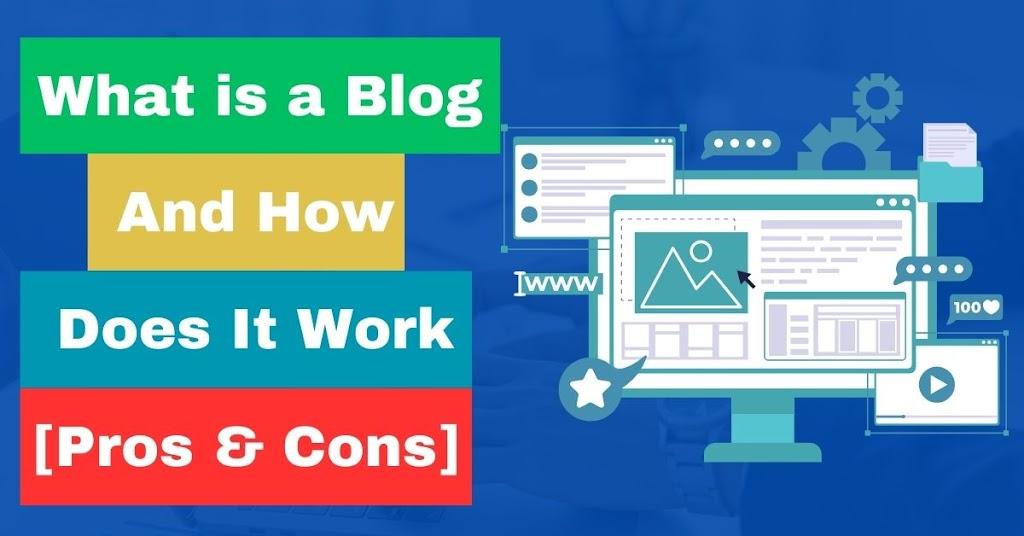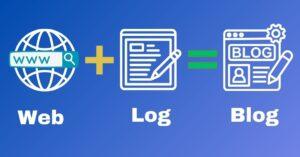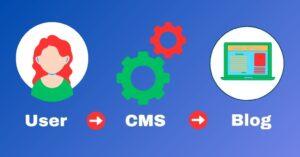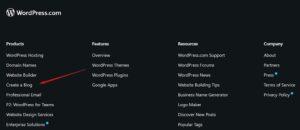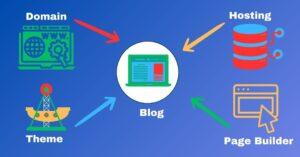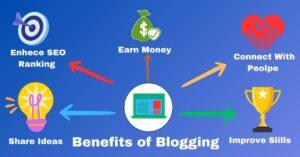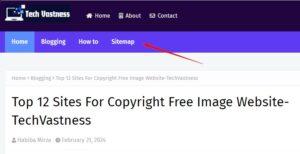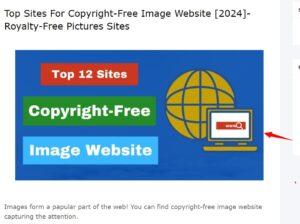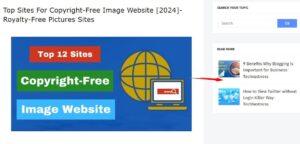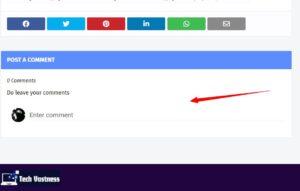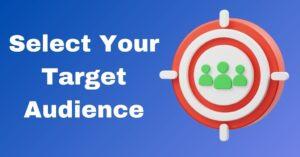Do you know that there are millions of blogs on the internet? Around 15 blog articles are published worldwide every time you blink your eyes.
Are you curious to know the pros and cons of a blog? You’re in the right place.
What is a blog and How does it work? How to make money from a blog?
In this post, I’ll explain the blogging guide.
Over the past few years, blogging has gained a lot of traction. I still find a majority of people have wrong conceptions about it. You are one among them, too.
To help clear all doubts, I’m here with a detailed guide post on what is a blog and how it work – what it is, how it works its different types and features, how to set up a blog, and how to make money from it.
I’m also going to share some pro blogging tips that would be highly beneficial to you if you’re a beginner blogger and want to start your blog.
Let’s get started post right away!
What is a Blog?
Yes, let me tell you a secret now. What you’re reading on your screen, this is a blog! Simply, a blog is an online journal or diary that is located on a website.
A blog, short for “weblog,” is a regularly updated website or online platform where individuals or groups share their thoughts, opinions, experiences, and expertise on various topics.
Several characteristics define a blog. Here are some of them.
- Blogs typically feature a series of posts displayed in reverse chronological order, with the most recent post appearing first.
- Content is regularly updated on the blog. The frequency of articles is very high.
- The content of a blog revolves around a specific category/industry.
- The people can interact with the blogger through the comments section. It’s a lot interactive.
You can say that a blog is simply a frequently updated website!
How Does a Blog Work?
The blog runs on a blogging platform. However, you can also create a blog through coding. But, most of the bloggers out there lack the technical skills to design their blogs. CMS has therefore stepped in to help!
CMS(content management system) is a readymade software platform that helps bloggers create, manage, design, publish, and change the content on their blogs requiring no technical skills or knowledge.
Many bloggers use content management systems (CMS) like WordPress, WordPress.org, Blogger, Tumblr, Drupal, Medium, and Joomla to create and manage their blogs. These platforms provide user-friendly interfaces for writing and publishing posts.
Difference Between a Website and a Blog
The blog and website are web-based platforms, but they serve different purposes and have different characteristics:
If you notice, the websites of reputed companies or brands always have a ‘Blog’ column on their home page. For instance, this is the homepage of WordPress.com. If you scroll down, you will find a link to their Blog section.
1. Purpose:
- Website: Generally, a website serves as an online presence for an individual, business, organization, or entity. It contains static content such as information about the company, its products or services, contact details, and other relevant information.
- Blog: Blogs often feature commentary including graphics and videos, as well as descriptions of events.
They are commonly used for personal expression, informational purposes, or marketing.
2. Content:
- Website: Websites typically have static content that remains relatively unchanged over time. This includes pages like “Services, ” “Contact,” “About Us,” etc.
- Blog: Blogs are characterized by dynamic, regularly updated content. They consist of individual posts or articles published at different intervals, often organized by categories or tags.
3. Structure:
- Website: A website is a hierarchical structure with multiple pages and sections, often with a navigation menu to help users explore different parts of the site.
- Blog: While a blog is part of a larger website, it usually has a linear structure with posts arranged in reverse chronological order on the main page, with older posts pushed down as new ones are published.
4. Frequency of Updates:
- Website: Updates to a website are less frequent and typically occur when there are changes to the business or organization, such as updated product information or new contact details.
- Blog: Blogs are updated more frequently, often with new posts published daily, weekly, or monthly, depending on the blogger’s schedule and goals.
5. Audience Engagement:
- Website: Websites are focused more on providing information and resources to visitors rather than fostering ongoing engagement. Interaction occurs through contact forms or other means, but it’s often less frequent.
- Blog: Blogs encourage interaction and engagement through comment sections where readers provide feedback, ask questions, and engage in discussions with the author and other readers.
Can Anyone Start a Blog?
Yes, my father or my 10-year-old neece can do that! You don’t need to know a single piece of coding to blog. You learn, what is a blog and how does it work?
With a few clicks button, you’re ready to go! Setting up a blog on WordPress is quicker than making those 2-minute Maggi!😊
Also, you don’t need to be an expert in a particular field to start your blog. You don’t need a Ph.D. in marketing to marketing techniques.
If you’re a student, you can start your blog and talk about your experience and knowledge in that field. Having an interest in your favorite topic matters the most!
What Do You Need to Set Up Your Blog?
Setting up a blog requires a few essential components and steps. What you’ll need is outlined below:
1. Platform:
Choose a blogging platform to host your blog. Popular options include WordPress, Blogger (it’s free), Medium, and Wix. Each platform has its features, customization options, and pricing plans, so choose one that aligns with your needs and budget.
2. Domain Name:
Domain name refers to the name of your website, select and register a domain name for your blog. Your domain name is your website’s address. You can register a domain through domain registrars like GoDaddy, Namecheap, or Google Domains.
3. Web Hosting:
A hosting service provides you with storage space for your website and also provides tools for your site’s maintenance, updates, backups, security, etc.
If you’re using a self-hosted platform like WordPress.org, you’ll need to purchase web hosting. Web hosting companies provide the servers where your blog’s files are stored and made accessible on the internet. Some popular web hosting include Bluehost, SiteGround, and HostGator.
4. Theme Design
Choose a theme or template for your blog’s design. Your make a blog appear attractive, you need a lightweight and fast theme that supports different widgets and customizations. I advise Astra and GeneratePress themes for your blogs.
5. Page Builder
A page builder is a plugin, Page builders help you create professional-looking pages with superior design effortlessly!
Some examples of popular page builders might be Beaver Builder, Elementor Builder, Dive Builder, and Thrive Architect, etc.
6. Analytics
Install web analytics tools like Google Analytics to track your blog’s performance and monitor key metrics such as traffic, engagement, and conversion rates.
This data helps you identify areas for improvement and make informed decisions about your content strategy.
To know more about AI Tools Power For Content Writing For Bloggers, check out this article first!
What are the Benefits of Blogging?
So, should you start a blog now too? Well, there are lots of reasons you definitely should!
- Blogging provides a platform for self-expression and creativity.
- Blogging allows individuals to share their thoughts, ideas, experiences, and expertise on various topics.
- Blogging is an effective tool for personal branding.
- By incorporating relevant keywords and providing valuable content, you can attract more organic traffic to your blog.
- Blogging connects you with like-minded and creative people who share your interests.
- A blog serves as a gateway to your website, attracting visitors who are interested in your content.
- Blogging helps you grow trustworthy followers who believe in your brand.
- You also earn money by monetizing your blog and selling your services or products to people.
Types of Blogs
What is blogging and how does it work?
Now.
Wondering what favorite topic you should blog about? Well, there are no restrictions on that.
While starting with blogging, you can try out multiple categories like fashion, food, lifestyle, tech, sports, DIY, travel, politics, business, fitness, finance, parenting, news, and other topics of interest.
However, today blogging is more focused on the readers and every blogger is busy in the race to find fresh ways to attract more viewers!
But do you know the dark secret? Creating useful content is the only sure-shot way of gathering a dedicated audience base.
Various categories have proved to be successful in the past years. If you’re starting with your blog, try your hand at these and figure out which works best for your interest.
Here are some common types of blogs:
1. Personal Blogs
A personal blog is all about the person who runs it. Where individuals share their personal experiences, thoughts, and interests.
They cover a wide range of topics such as travel, food, hobbies, and daily life.
A personal blog is rarely based on earning money, but on finding and connecting with readers of beliefs and similar interests.
2. Business Blogs
Business Blogs include a business mindset. They create content targeted at a specific topic/area to attract readers who can become their potential clients.
These blogs earn money by offering their services and products to readers.
For instance, I’m a software developer who wants to make money. Now, what would I do? I’ll start a business blog about wide aspects of computer technology, programming, software, etc.
This will help me gather a loyal reader base, to whom I can sell my services and software afterwards.
Business blogging helps you build your expertise in a particular field and show your skills to your potential clients. So if you wish to sell software, consultancy services, etc, you go for a Business blog.
A great instance of a Business Blog is Neil Patel. He does not monetize his blogs directly. His main revenue comes through selling his software and consultancy services.
3. Company Blogs
Company Blogs are written by companies to provide information about their services and products.
For instance, Hostinger has a company blog is frequently updated with informative topics like what is hosting, how to use it, why is important, what WordPress is, etc.
4. Niche Blogs
Niche blogs focus on specific topics, a niche refers to a small section of a large area. Niche blogs focus on a specific topic that the blogger specializes in and is directed toward a specific audience.
Not everybody is interested in finding ways to pet a dog, right? That’s a very niche category! This means it caters to the interests of a very specific group of audience.
A travel blogger extensively creating content on best places is a niche blogger.
Niche blogging is one of the most effective ways to grow a dedicated people in less time!
5. Education Blogs
Education blogs are created for educational purposes and are an online resource to provide information to learners or students.
These types of blogs share resources, tips, and insights on teaching, learning, academic subjects, study tips, educational technology, course content, online courses, etc.
6. Professional Blogs
Professional Blogs aim to make money. A Professional blogger’s income depends on her/his blog and he implements lots of monetization techniques on his content like displaying ads, and promoting other people’s products/services to earn a commission out of it, etc.
Professional bloggers are those who create content for a single website or those who create content for several niche websites. Their goal is to generate huge traffic that would benefit them with their advertising and sales.
An instance of a successful professional blog would be ShoutMeLoud. You’ll find lots of how-to guides on WordPress and Blogging on their website. Their main purpose is revenue generation and their large source of revenue is affiliate marketing!
The Basic Structure of a Blog
Blogs are overloaded with widgets like image sliders, testimonials, Instagram feeds, email subscriptions, author profiles, etc.
However, the standard structure of a blog remains the same. The following elements must be included in your blog:
Header
Your blog’s header section has a navigation bar. It comprises links to the blog’s important pages, services, or categories.
Content Area
In this section, all your blog posts are displayed in reverse chronological order. This means it will display the latest articles on the top.
Sidebar
A sidebar is an instrumental section in a blog that appears on the left/right side of your main content.
It can display additional information like a list of recent articles, comments, portfolio, Arthor’s profile, and calls to action like email subscription forms, etc.
Footer
It appears on all pages of a blog and comprises legal information like privacy policy, disclaimer, copyright notices, contact pages, etc.
Major Platform for Blogging
The blogging Platform is a software application that helps you create a website or blog.
For a blog to be successful, you must consistently work for several months (or even years). That’s why picking the right blogging platform is necessary if you want to manage your blogs effortlessly.
There are many free sites that you can use to create and run a blog. But here are five of the large platforms millions of websites use worldwide.
1. WordPress: WordPress is the world’s #1 most websites that use WordPress as their content management system.
If you’re a beginner to bogging, I recommend using WordPress as it is easy to set up and use and offers various features to help you get started [including plugins, themes, etc.]
2. Medium: Are you someone or a writer who wants to share their ideas with the world? Medium is for you.
It is known for its user-friendly and high-quality content interface. It’s a great platform for those who want to focus on writing and share their ideas with a large number of people.
3. Blogger: It is another popular blogging platform that is run by Google. Blogger is easy to set up and use with various templates to select from. For beginners and hobby bloggers, Blogger is a good choice.
4. Wix: Wix is easy to use and set up with a drag-and-drop interface to create and customize your blog. Wix is a better choice for anyone who wants to create a professional-looking blog without learning any code.
5. Weebly: Weebly is a free website builder that creating a blog, website, or online store easy. On Weebly, you find hundreds of SEO tools and customizable website templates.
How to Make Money From a Blog?
There are multiple ways to start making money from your blog. But, some of the popular ways are:
Display Advertising: Join an ad network like Google AdSense, Media.net, or Ezoic to display ads on your blog.
Affiliate Marketing: Promote products or services relevant to your blog’s niche through affiliate programs.
Offer Services: If your blog showcases your expertise in a particular area (e.g., writing, design, consulting), you can offer related services to your audience for a fee.
Sell Digital Products: Create and sell digital products like e-books, online courses, printables, or templates related to your blog’s topic.
Freelance Writing: Use your blog as a portfolio to showcase your writing skills and attract freelance writing gigs for other publications or websites.
Your way of monetization would depend on your select niche.
Blogging Tips for Beginners
1. Select your target audience
When beginning your blog, you should always have a target audience in mind. For instance, if you start a fashion blog, your audience is young ladies and teenagers. If you start an educational blog, your audience will be school and college students.
2. Post valuable content
Now, you have a good blogging platform, and you have your target audience group. The next step is to brainstorm some good content ideas that would attract your readers to your blog.
Beginning writing extensively on your specific domain, and your blog certainly gathers a dedicated audience.
3. Post frequently
The most important step now is to remain active on your blog and post useful articles regularly. Create a strategy for your blog articles and decide on the topic, theme, and frequency of your articles every week.
4. Optimize your blog
Finally, after following all the steps, you will start receiving more audience on your blog. What to do next? Surfing your website should be a pleasant experience for them.
To make that possible, you can make use of plugins to optimize your blog for a good site speed, design, and user experience. You can also learn about SEO and blog portion techniques to enhance your reader base.
I hope this post helps you understand the basics. what is a blog and how does it work? How you can start today!
Pros and Cons of Blogging
What is Blogging What Are Its Advantages And Disadvantages?
Blogging has a lot of different opinions. Some people see blogging as a good way to network with others and earn money. while others consider blogging as a waste of time. What are the pros and cons of blogging? Here’s a closer look.
Pros of Blogging:
👍One of the biggest advantages of blogging is that it helps lots earn money. There are ways you can monetize your blogs such as selling products, selling advertising, or affiliate marketing.
👍Blogging allows you to share your thoughts and expertise with the world. It allows you to connect with a targeted audience and build a community of followers around your blog.
👍Blogging helps you build your brand and establish yourself as an expert in your industry.
👍It also is a good way to drive traffic to your website and generate leads for your business. By optimizing your blog articles for search engines, you will be able to get more audience to your site and increase the chances of them doing business with you.
👍Finally, blogging can help you build and improve your skills in writing, SEO, networking, coding, etc.
Cons of Blogging:
👎It takes time and effort to build a successful blog, which is one of the biggest disadvantages of blogging. If you want faster results, blogging may not be the right choice for you.
👎It can be difficult to come up with fresh content regularly, and it can be even harder to promote your blog and get the audience to read it.
👎There’s a hard competition out there. There are millions of blogs on the internet, so it can be extremely difficult to stand out from the crowd and build a good blog.
👎Finally, Blogging can be a harder task. If you’re not careful, it’s easy to get caught up in the day-to-day of running your blog and promoting your content, and before you know it, hours have gone by.
What is a blog and how does it work? As you can see, there are some advantages and disadvantages to consider before you start blogging. But if you think you’re up for the challenge, then go for ready it! You can become a blogger like me.😊
I will ensure that you keep receiving valuable content permanently. Thanks for learning! This is Habiba Mirza singing off! I’ll meet you guys in the next article. Always shining!✨

